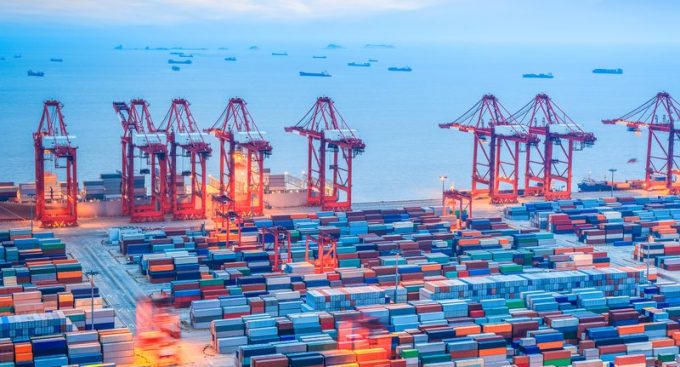Lufthansa Cargo strengthens 'key strategic partnerships' in China
Lufthansa Cargo has made a big bet on China: it has signed agreements with Shanghai ...
XPO: BUILDING BLOCKSHLAG: BIG ORDERLINE: REACTIONLINE: EXPENSES AND OPERATING LEVERAGELINE: PIPELINE OF DEALS LINE: DEMAND PATTERNS LINE: LANDSCAPELINE: CONF CALL STARTSDSV: UNTOUCHABLEEXPD: NOT AS BULLISH AS PREVIOUSLYFWRD: SPECULATIVE RALLY MAERSK: INTEGRATED LOGISTICS WIN MAERSK: TRUMP TRADEKNIN: THE SLIDELINE: DEBUT AAPL: ASIA CAPEXDHL: THE HANGOVERXPO: ELECTION DAY RALLY
XPO: BUILDING BLOCKSHLAG: BIG ORDERLINE: REACTIONLINE: EXPENSES AND OPERATING LEVERAGELINE: PIPELINE OF DEALS LINE: DEMAND PATTERNS LINE: LANDSCAPELINE: CONF CALL STARTSDSV: UNTOUCHABLEEXPD: NOT AS BULLISH AS PREVIOUSLYFWRD: SPECULATIVE RALLY MAERSK: INTEGRATED LOGISTICS WIN MAERSK: TRUMP TRADEKNIN: THE SLIDELINE: DEBUT AAPL: ASIA CAPEXDHL: THE HANGOVERXPO: ELECTION DAY RALLY

China’s state council announced yesterday that international liner operators can transport containers transhipped from Shanghai’s Yangshan to the ports of Qingdao, Tianjin and Dalian, temporarily lifting cabotage restrictions.
The pilot scheme is aimed at developing the Lin-gang Special Area, part of the China (Shanghai) pilot free trade zone, and will last until 31 December 2024.
Previously, foreign liner operators could not offer transport services between Chinese ports, or circumvent cabotage restrictions by chartering or buying slots on China-flagged ships.
Foreign enterprises and individuals are also barred from operating vessels in China’s inland waterways.
However, in March, the Chinese government issued a report calling for ‘wider and deeper opening-up’ to the outside world and greater participation in international economic cooperation.
Lin-gang Special Area is predicted to see its GDP grow four-fold by 2025, according to the 14th five-year plan that was released in August. The plan called for shipping, financial and IT services to be set up in Lin-gang, and again by 2025, the target is for at least 50 multinational corporations to have regional headquarters in the special area.
And a system facilitating free trade should be in place to make the Yangshan Special Comprehensive Bonded Zone in Lin-gang more competitive.
Foreign investment requirements in certain sectors, as well as market entry limits, should be relaxed in Lin-gang according to central regulators’ guidance. Experiments can be made to also relax or remove limits on cross-border payment, overseas consumption and the flow of people.
Comment on this article